Should I Sell My House Before Building a New One
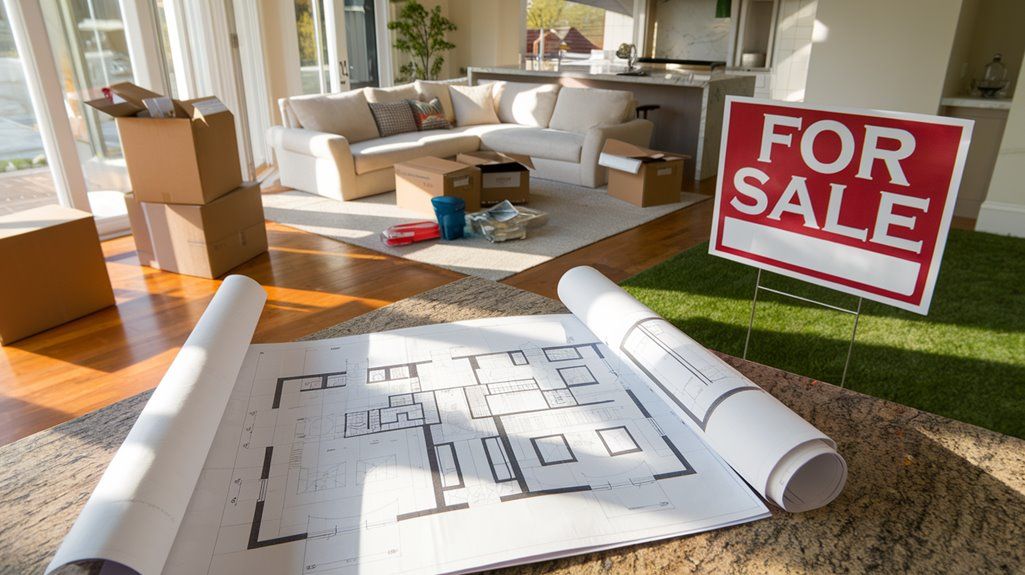
Building a new home while owning an existing property creates a challenging financial puzzle for homeowners. You must juggle mortgage payments, construction costs, and living expenses simultaneously.
When housing markets fluctuate unpredictably, this decision becomes even more complex, affecting your family’s stability and financial health.
You might face financial strain from carrying two mortgages or struggle with temporary housing arrangements. If construction delays occur, your costs could spiral while managing both properties.
Since market conditions change rapidly, timing becomes crucial for your financial security. You should sell your current house before building a new one if you need the equity for construction costs.
This guide will walk you through critical decision factors and provide practical steps to manage this transition effectively. In the following sections, we’ll explore proven strategies to help you navigate this important real estate decision.
Key Takeaways
- Selling first provides clear financial visibility and strengthens your budget planning for construction costs, eliminating uncertainty about available funds.
- Avoiding dual mortgages reduces financial strain and improves your debt-to-income ratio, making new construction loans more accessible.
- Consider temporary housing costs, including rent and storage fees, which typically range from $2,000 to $4,000 monthly during construction.
- Cash home buyers offer quick closings within 7-14 days, providing faster access to funds for your new construction project.
- Selling as-is saves money on pre-sale repairs and renovations, allowing you to allocate more funds toward your new build.
Why Consider Selling Before Building?
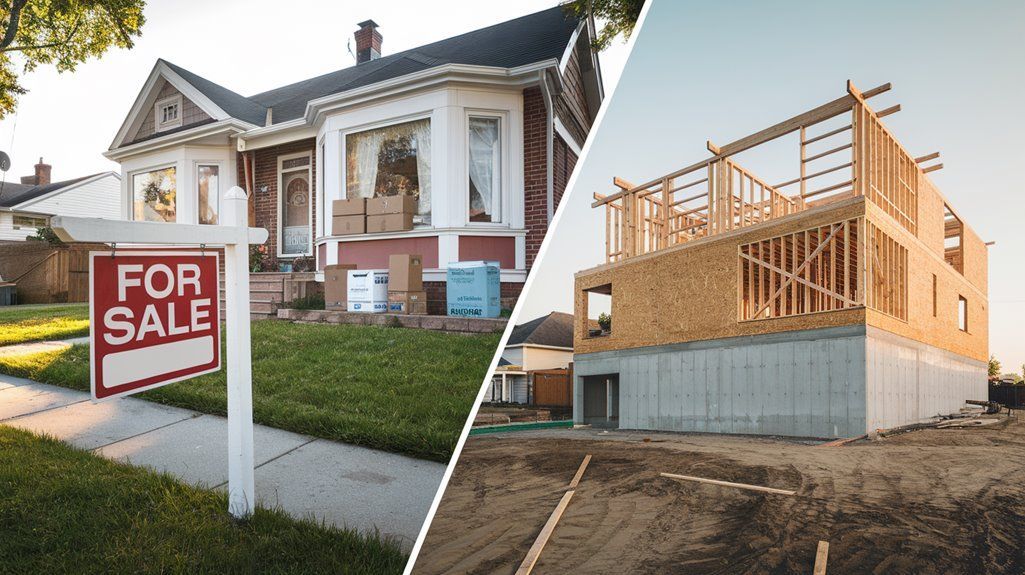
Selling your current home before starting a new build can protect you from financial risks. You will know the exact amount available for your new construction project.
This knowledge helps create a realistic budget for your building plans. Your financial decisions become clearer when you have secured funds from your existing property.
The real estate market conditions can affect your home’s selling price significantly. If the market favors sellers, you could get a better price for your current home. You won’t need to manage two mortgages at once by selling first. This approach prevents unnecessary financial strain during the construction phase.
If you wait to sell until after building, you might face unwanted pressure. Your negotiating position could weaken with potential buyers. They might sense your urgency to sell quickly. When you sell first, you can wait for the right offer without stress.
How Does Selling First Impact Financing?
Selling before building creates several financial benefits when seeking construction loans. You will have more leverage with lenders after selling your current home. This cash position makes you a more attractive borrower to financial institutions.
If you sell first, lenders will likely offer you better interest rates. You can also avoid the stress of managing two mortgages at once. This situation helps improve your debt-to-income ratio significantly.
We recommend selling first because it provides exact numbers for your budget planning. You will know the precise amount available from your home sale. This certainty helps you make smart decisions about construction costs. So, you can avoid financial strain during the building process.
If you approach lenders with cash in hand, they will view you as less risky. While some people try to manage two properties, selling first is often safer. Hence, most financial advisors suggest completing the sale before starting construction.
What Are the Risks of Selling Early?
Selling early comes with several financial and practical risks you should carefully consider. You will need a temporary place to live during the construction phase. This situation can add unexpected costs to your budget. Market changes might increase construction expenses beyond your initial plans.
If construction prices rise, you could face higher costs than originally expected. While waiting for construction, you might need to pay for storage units. Interest rates could increase during the building period, affecting your mortgage payments.
You may encounter fierce competition when searching for available building lots. This competition often leads to inflated prices for desirable locations. Weather delays and permit issues can extend your temporary housing needs.
Should I Buy First or Sell First?
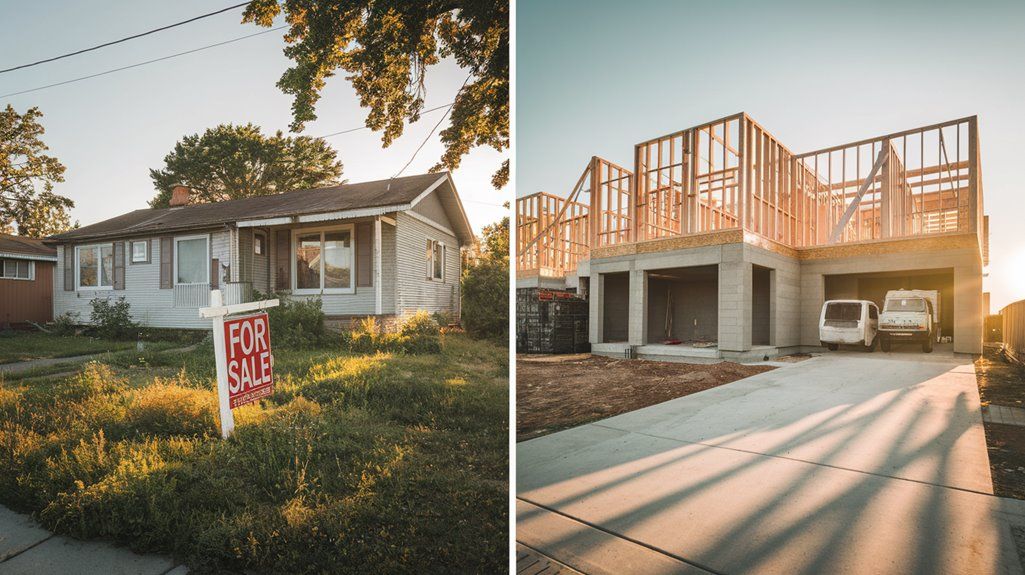
The choice between buying or selling first depends on your financial situation and market conditions. You can make a safer choice by analyzing the current real estate market trends. In a seller’s market, you might consider buying your new home first. Since homes sell quickly, your existing property will likely find buyers soon.
When the market favors buyers, you should sell your current home before purchasing. This approach will give you more control over negotiations and financial planning.
If you can’t handle two mortgages, selling first is your best option. However, you will need temporary housing until you find a new home.
You can enjoy a smoother move if you buy first and keep your current home. But this choice requires enough money to cover multiple housing payments.
A bridge loan could help you manage both properties during the transition period. Yet these loans often come with higher interest rates and strict terms.
Most homeowners achieve better results when they choose to sell first. This strategy reduces financial stress and helps avoid complicated property dealings.
How Can Selling First Affect Market Timing?
Selling first gives you a clear view of the current market values and trends. You can study market conditions thoroughly before starting your new build project. This knowledge helps you plan the right time to begin construction. We recommend analyzing local property prices and building costs carefully.
Since you know your exact sale profits, you’ll make better choices about your build budget. If market prices change during construction, you can adjust your plans accordingly. Your financial position becomes stronger with certain sale proceeds in hand.
When property values rise during construction, you might pay more for your new home. You should consider short-term housing while building your new home. It gives you time to watch market changes closely. If prices drop, you can take advantage of better building opportunities.
The strategy works best when you stay flexible with your timeline. You can rent temporarily to avoid rushing into construction decisions. So, timing becomes less stressful with a backup housing plan.
What Costs Are Involved in Selling Early?
Selling a home early requires several significant upfront costs for homeowners to consider. You must pay real estate agent commissions of 5-6% from your sale price. The home staging expenses will cost between $2,000 and $5,000. Buyers often request repairs that can range from $5,000 to $15,000.
This transition period demands additional financial planning for temporary living arrangements. You will need to budget between $2,000 and $4,000 monthly for rent and storage. If market conditions change during this time, your selling profits could be affected.
The moving process becomes twice as expensive since you’ll move two times. Your first move to temporary housing costs between $1,500 and $5,000. When you finally move to your new home, these expenses will occur again.
If you plan carefully, these costs can be managed within your budget. While this approach has its challenges, many homeowners find it financially beneficial. So, you should compare these expenses against the advantages of selling first.
Should you renovate before selling?
You must carefully weigh the costs and benefits before renovating your home for sale. We recommend starting with simple updates that offer good returns on investment. You can refresh your space with new paint colors and modern hardware fixtures. This approach often yields better results than expensive remodeling projects.
If you live in a competitive market, you should focus on strategic improvements. Your renovations need to match local buyer preferences and market standards. The market conditions will determine how much work your property needs.
When selecting upgrades, stick to neutral design choices that appeal to most buyers. You can research popular trends in your neighborhood for guidance. This strategy helps attract more potential buyers to your property.
Can You Sell Your Home As-Is?
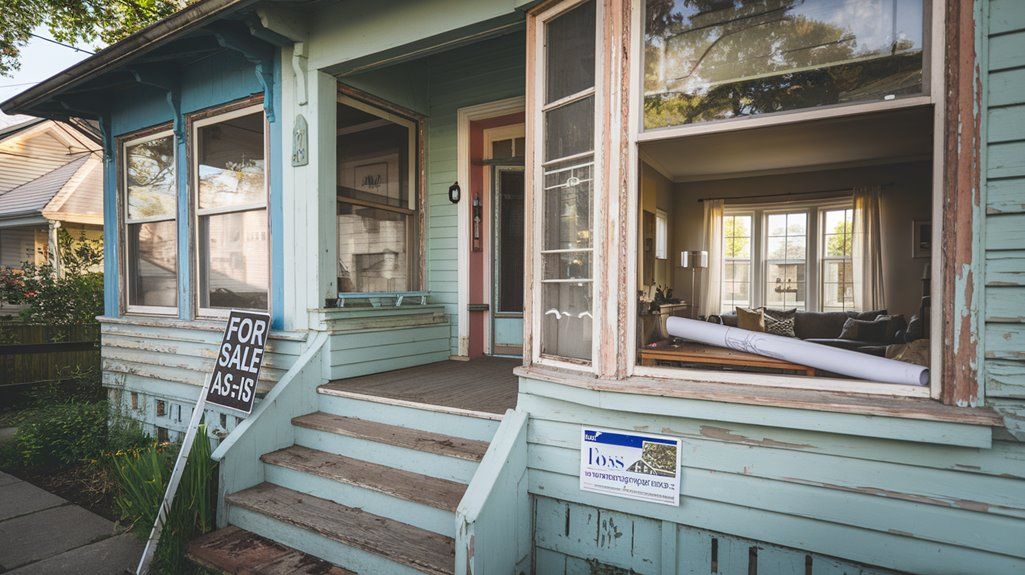
Selling a home as-is means offering your property for sale in its current condition. You can choose this option instead of making repairs or renovations before listing. This approach often appeals to real estate investors and bargain hunters.
If you sell as-is, you’ll likely receive lower offers than fully renovated homes. Yet, this method saves both time and money on pre-sale improvements. Your decision should depend on local market conditions and personal circumstances.
The benefits of as-is sales are clear and straightforward:
- You can close deals faster without repair negotiations
- It eliminates the need for renovation expenses
- You avoid the stress of managing contractors
- This method reduces paperwork and complications
When you consider an as-is sale, research your local real estate market first. You should look at recent sales of comparable properties in similar condition. So, you can set a competitive price that reflects your home’s current state.
If buyers know upfront about the property condition, negotiations become simpler. Your real estate agent can help determine a fair price for an as-is sale. We recommend discussing this option with professionals who understand your local market dynamics. This strategy works best if you need to sell quickly or want to avoid renovation hassles.
Benefits of selling as-is without renovations
Selling a home as-is lets you avoid expensive repairs and renovations before listing. You can save thousands of dollars by skipping major upgrades and home improvements. This approach keeps more money in your pocket for your next property.
If you choose to sell as-is, you won’t need to manage multiple contractors. You can forget about the stress of renovation timelines and project delays. So, you’ll have more time to focus on your next move.
The as-is market attracts many potential buyers with specific interests. Investors often look for properties they can fix and flip for profit. When you list as-is, cash buyers may close deals faster than traditional buyers. This selling method works well for homeowners who want a quick and simple transaction.
You can market your property with complete honesty about its condition. If buyers know exactly what they’re getting, fewer legal issues will arise later. The straightforward nature of as-is sales reduces confusion between sellers and buyers.
How Can Cash Home Buyers Help?
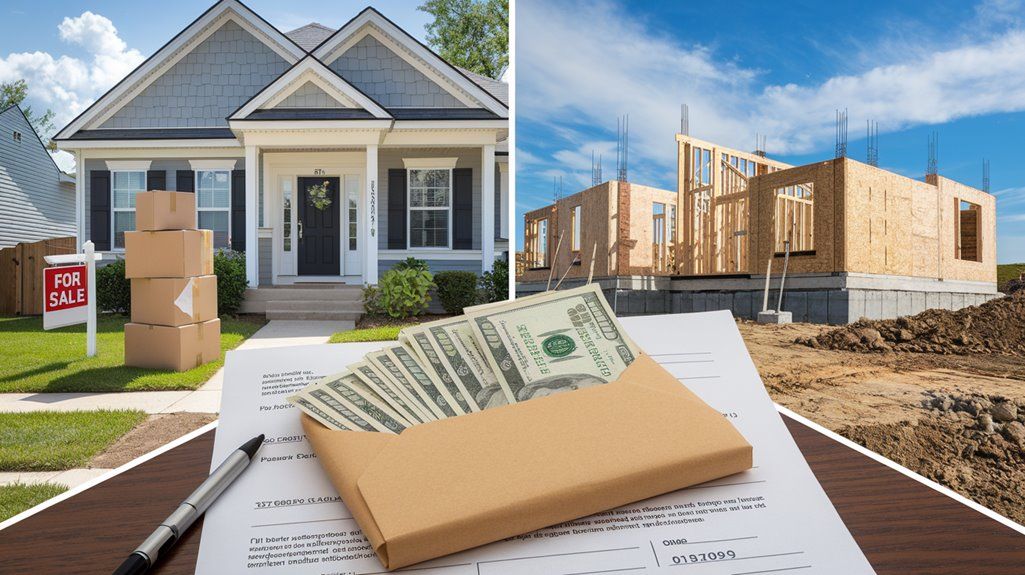
Cash home buyers help homeowners sell their properties fast without traditional real estate hassles. You can get a cash offer within 48 hours from these professional property investors. We understand that speed matters when you need to sell before building a new home. They complete most transactions in just 7-14 days after accepting the offer.
This quick process eliminates delays from bank approvals and financing issues. You will receive a firm closing date to plan your new construction timeline. If you work with cash buyers, there’s no need to repair or stage your home.
So, selling to cash buyers saves money on real estate agent fees and closing costs. This saved money can help fund your new home construction project. While you might get less than market value, the speed and convenience often justify it.
When time is more important than maximum profit, cash buyers offer an ideal solution. You can avoid months of traditional selling processes and uncertain closing dates. If your property needs repairs, cash buyers will still purchase it as-is.
These investors streamline the entire home-selling experience for busy homeowners. We focus on making the process simple and stress-free for sellers.
Advantages of selling to cash buyers
Cash buyers make home sales faster and simpler than traditional buying methods. You can close deals within 7-14 days with cash purchases. This quick timeline helps when you need to move quickly to your new home.
Since cash buyers purchase homes “as-is,” you won’t spend money on repairs. You also save money by avoiding realtor commissions in these transactions. This approach eliminates the standard 5-6% commission fees from the sale price.
If you sell to traditional buyers, your deal might fall through due to financing issues. Cash sales remove this risk because buyers already have funds available. We often see fewer complications with cash transactions compared to mortgage-dependent sales.
Why Sell As-Is to Tulsa Home Buyers
Tulsa Home Buyers provides fast and simple home sales across multiple Oklahoma cities. We serve homeowners in Broken Arrow, Owasso, Bartlesville, Jenks, Muskogee, Claremore, Sand Springs. You will get fair market value without the stress of traditional home selling.
When you choose to sell as-is, you unlock several key benefits for your move. If you plan to build a new home, this option becomes even more valuable. You can skip costly repairs and save money for your new build.
This method removes the need for open houses and multiple buyer visits.
The process is quick and straightforward with Tulsa Home Buyers. You won’t need to deal with long inspections or price negotiations. We can close the deal according to your schedule and needs. This flexibility helps you match the timing with your new construction plans.
If you want to avoid financial risks, selling as-is makes perfect sense. You will save both time and money on home improvements. So you can focus on your future plans without stress. The simple process ensures a smooth transition to your next home.
Ready to work with Tulsa Home Buyers?
Let's connect! We’re here to help.
Send us a message and we’ll be in touch.
Or give us a call today at (918) 516-8951


